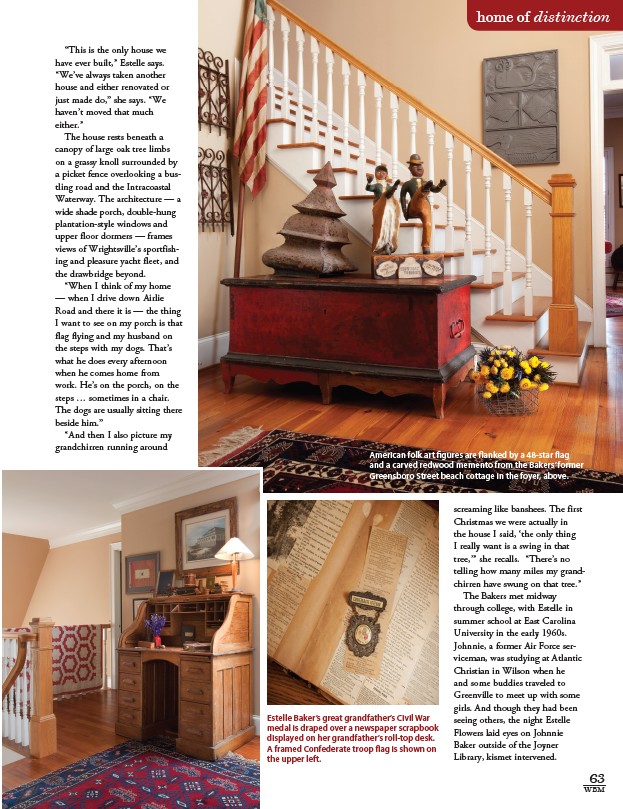
“This is the only house we
have ever built,” Estelle says.
“We’ve always taken another
house and either renovated or
just made do,” she says. “We
haven’t moved that much
either.”
The house rests beneath a
canopy of large oak tree limbs
on a grassy knoll surrounded by
a picket fence overlooking a bustling
road and the Intracoastal
Waterway. The architecture — a
wide shade porch, double-hung
plantation-style windows and
upper floor dormers — frames
views of Wrightsville’s sportfishing
and pleasure yacht fleet, and
the drawbridge beyond.
“When I think of my home
— when I drive down Airlie
Road and there it is — the thing
I want to see on my porch is that
flag flying and my husband on
the steps with my dogs. That’s
what he does every afternoon
when he comes home from
work. He’s on the porch, on the
steps … sometimes in a chair.
The dogs are usually sitting there
beside him.”
“And then I also picture my
grandchirren running around
home of distinction
American folk art figures are flanked by a 48-star flag
and a carved redwood memento from the Bakers’ former
Greensboro Street beach cottage in the foyer, above.
screaming like banshees. The first
Christmas we were actually in
the house I said, ‘the only thing
I really want is a swing in that
tree,’” she recalls. “There’s no
telling how many miles my grandchirren
have swung on that tree.”
The Bakers met midway
through college, with Estelle in
summer school at East Carolina
University in the early 1960s.
Johnnie, a former Air Force serviceman,
was studying at Atlantic
Christian in Wilson when he
and some buddies traveled to
Greenville to meet up with some
girls. And though they had been
seeing others, the night Estelle
Flowers laid eyes on Johnnie
Baker outside of the Joyner
Library, kismet intervened.
Estelle Baker’s great grandfather’s Civil War
medal is draped over a newspaper scrapbook
displayed on her grandfather’s roll-top desk.
A framed Confederate troop flag is shown on
the upper left.
63
WBM